BREAKING: Whitman Under State Investigation for Alleged Title IX, Campus Safety Violations
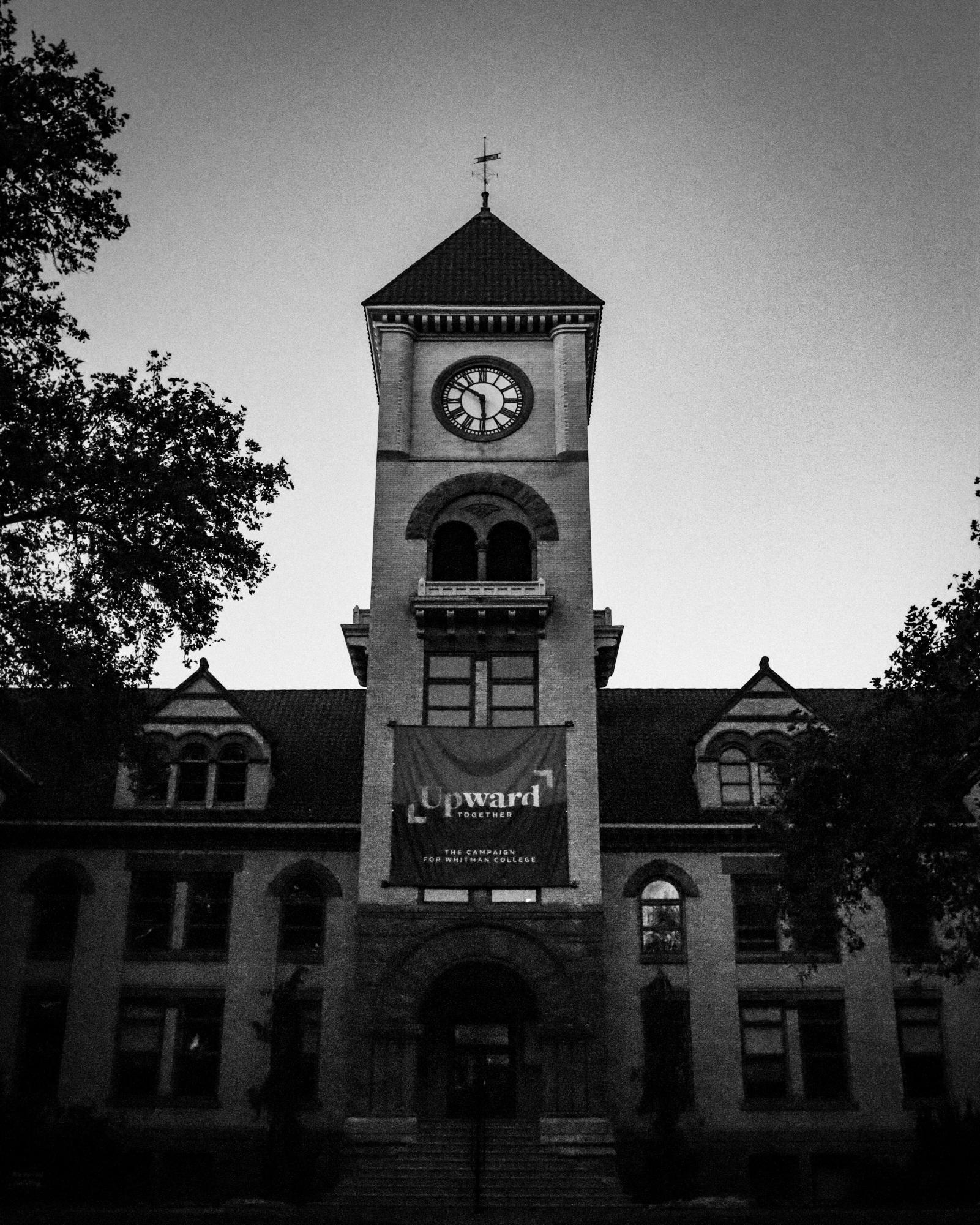
This is part 1 of a multi-part Wire investigation into Whitman’s handling of sexual violence prevention. The following article includes depictions of sexual violence and other potentially triggering topics. Due to the sensitive nature of this topic, many sources were granted anonymity amid fear of professional, personal, and legal repercussions; these sources are represented by pseudonyms.
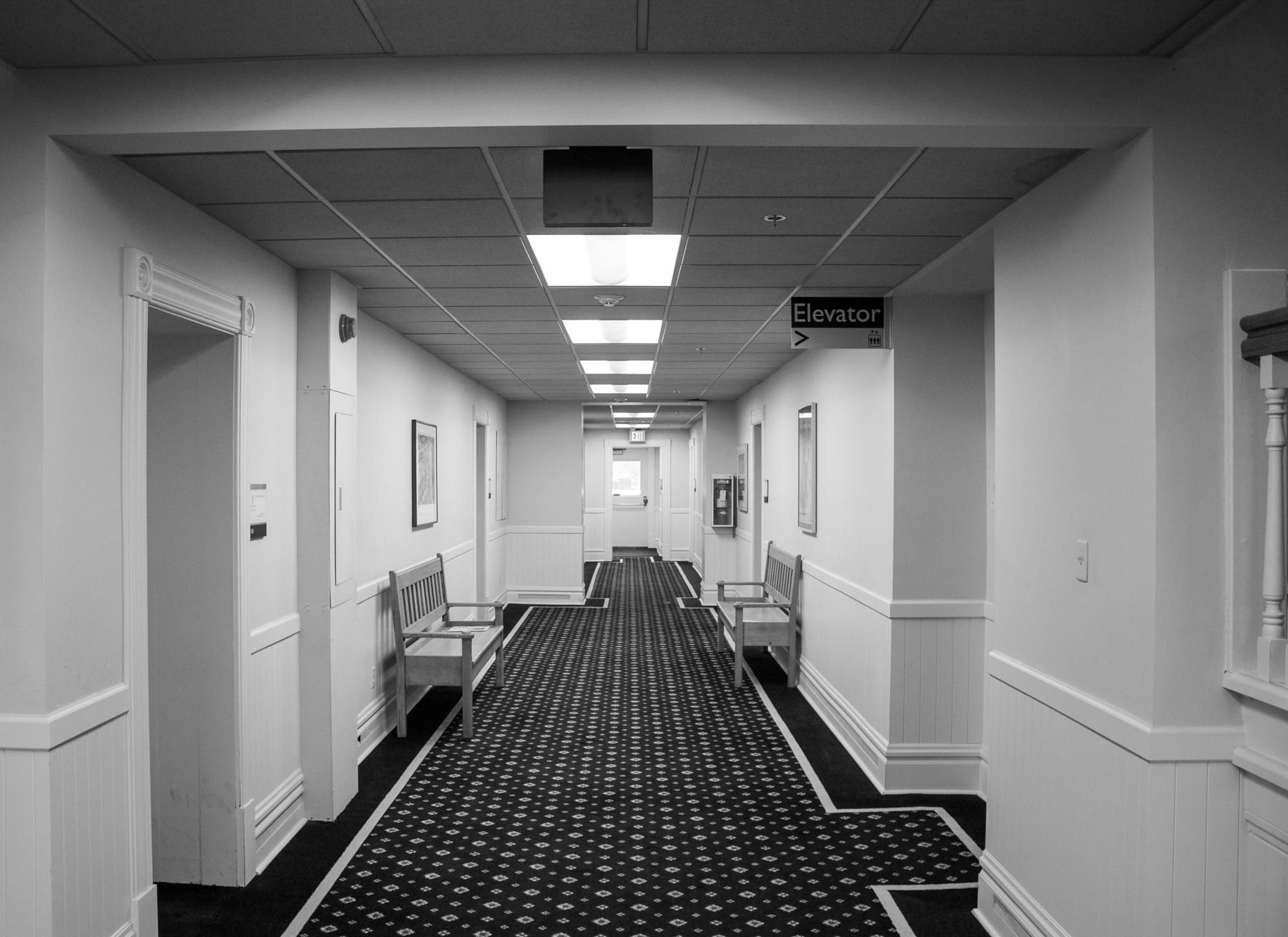
According to several sources, the currently sealed investigation is ongoing.
The Wire has uncovered the AGO’s investigation into Whitman, which sources say has been ongoing since at least 2022. The Wire has independently confirmed that representatives from the AGO’s office visited Walla Walla to interview multiple students within the past two years. A source familiar with the investigation says that the AGO is attempting to pursue a lawsuit against Whitman under consumer protection law R4CW 19.86.020. A document from the Office of the Attorney General obtained by The Wire describes the investigation as being focused on “unfair or deceptive acts and practices with respect to campus safety at Whitman College.”

RCW 19.86.020 outlaws “unfair methods of competition and unfair or deceptive acts or practices in the conduct of any trade or commerce.” While it is unclear how long the alleged violations have occurred, The Wire has confirmed that the AGO has requested documents going as far back as 2012 from witnesses.
Multiple sources familiar with the investigation told The Wire that cases which should be handled through Title IX are instead routinely dealt with through Code of Conduct. They allege that such cases which go through Code of Conduct are not accurately reflected in legally mandated reports such as the Annual Security and Fire Safety Report (ASR). They allege these patterns are part of Whitman’s deceptive practices which are under investigation by the AGO.
In an email to The Wire, Vice President for Finance and Administration Jeff Hamrick confirmed that the AGO requested information and documents from Whitman College in August 2023. Hamrick stated that Whitman fully complied with the request, and document production requests made through the Spring 2024 semester. Hamrick stated that Whitman will continue to comply with AGO requests as they are made.
Though the administration appears to be aware of the nature of the investigation, as of the time of publication The Wire has found multiple instances of outdated information on Whitman’s official website which may constitute “unfair or deceptive acts and practices with respect to campus safety.”
For example, Whitman advertised Green Dot on their website as a part of their sexual education process. As recent as Oct. 23, 2024, these advertisements can be found on the “Preparing Your Student for College” under the subtitle, “Have hard conversations now” and the “Grievance Policy” under the section, “1.4 Education and Prevention.”
Green Dot was a bystander intervention program founded in 2006 that aimed to provide education to students on consent and sexual assault. This program was adapted by Whitman in 2009 and dropped in the Spring 2020 semester.
Director of Equity and Compliance and Title IX Coordinator Cassandre Beccai denied allegations that the college has discouraged students from reporting, and that Clery Act requirements have not been followed.
“If cases are not pursued as official Title IX cases under the law, they may move through the college’s own conduct process which is a formal process that is separate from Title IX,” said Beccai.
As of Oct. 25, 2024, Whitman has updated its website, removing all mentions of its Green Dot program, which was dropped in 2020. The following images highlight these changes.
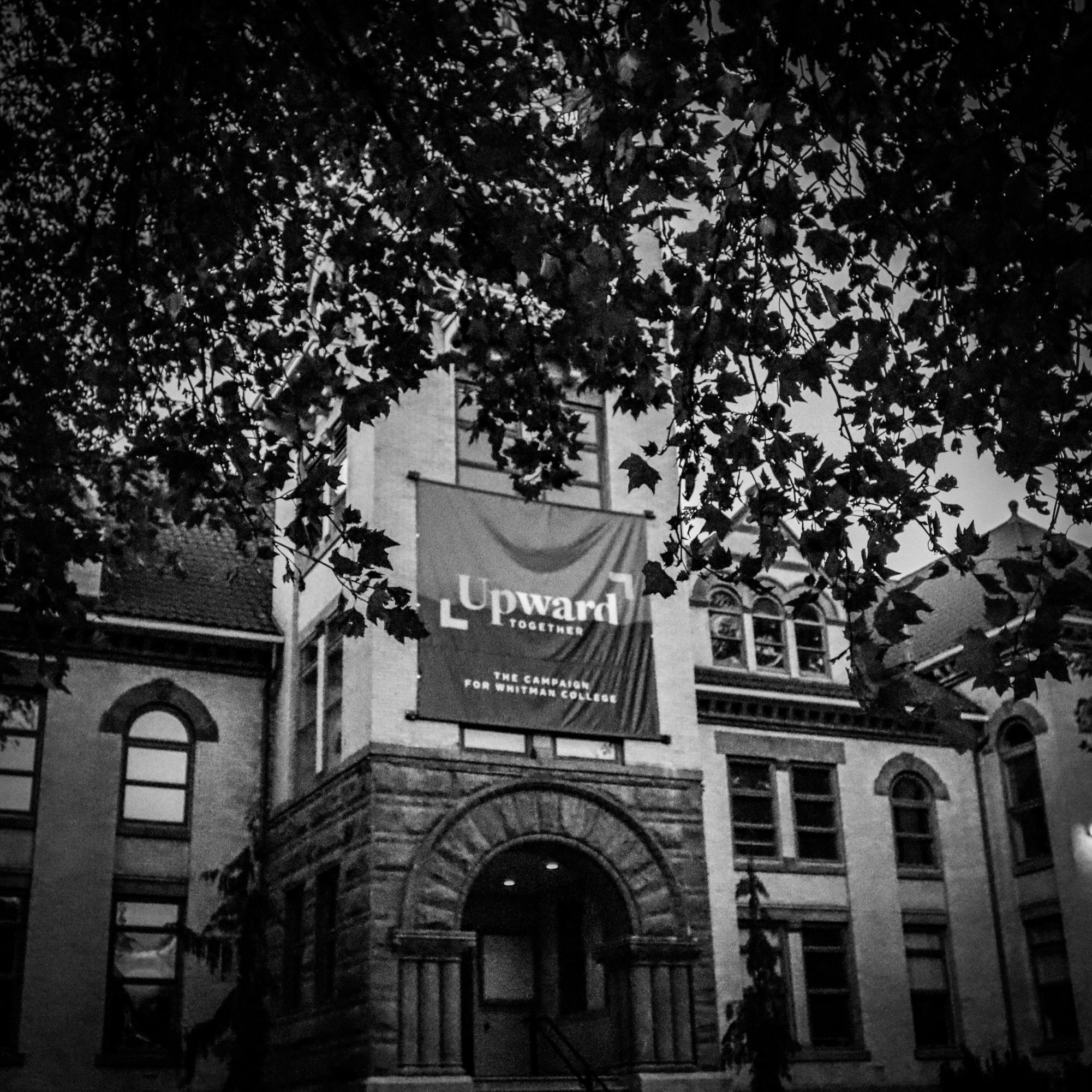
S. Daniel Carter, President of SAFE Campuses, LLC says that he’s not aware of any previous cases in which a state has brought similar civil litigation against an institution similar to Whitman. Sources familiar with the investigation have told The Wire that the AGO intends for this to be a landmark case, used in the future to hold other schools in the state accountable.
Carter states that the AGO will likely apply state standards rather than just focusing on compliance.
“I also doubt they’re going to rely directly on compliance or noncompliance evidence, as it looks like they’re going to use the state standard. Not following a published policy may be a Clery violation but it could also be a violation of the state law as well,” Carter said.
The Clery Act is a law that requires colleges and universities to release a public annual security report to students and employees every Oct. 1. The 2020 and the 2021 Annual Security Report (ASR) was released with multiple errors, including missing numbers from crimes classified as sexual assault such as rape, incest, forced fondling and statutory rape. Sources familiar with the investigation told The Wire that these errors are part of what drew the AGO’s attention to Whitman.
In an email sent to the Whitman community on Nov. 3, 2021, former President Kathleen Murray confirmed the errors and distributed a corrected version of the report.
Carter described how the errors on the 2021 report may have occurred and details the possible violations of the Clery act.
“The gap with the statistics appears to be from failing to adequately collect information from campus security authorities (like student affairs) outside the Security Office,” Carter said.

Breanna*, who spoke with investigators from the AGO numerous times, was in her first semester of college when she was sexually assaulted. Breanna says that while she asked for formal support from the administration several times, her requests were routinely denied.
Breanna claims that, while she asked for a No Contact Order, she and her assaulter were included on the same email thread wherein instructions were given to not speak to each other. She claims she never received a formal No Contact order.
Still, Breanna says, her abuser disregarded the warning.
“He would show up at my house all the time and stand outside,” said Breanna, “the morning of his first interview, he and his friends set up [a drinking game] on my lawn and played [the game] after he interviewed about literally assaulting me.”
Breanna says she repeatedly asked Dunn for help, and was ignored.
“I would call [Juli]. I’d be like, I need help. I need you to come do something about this, like send someone,” said Breanna, “and they told me that I wasn’t allowed to go to the police about it.”
“… there was a pattern of discouraging students from labeling things as Title IX and discouraging students from accessing other resources like law enforcement.”
Assistant Vice President for Student Life, Juli Dunn, denied the allegation that she has discouraged a survivor of sexual violence from reporting their case to the police.
Breanna claims the college threatened her with legal action if she went to the police.
“They said that if I took legal matters, then that would be like defaming Whitman in some way and that they could get me in trouble,” said Breanna.
Avery*, who worked closely with student survivors to connect them to community resources, also witnessed a pattern of students being pressured into using Code of Conduct.
“I feel like the college is pretty aware of the larger amount of power they have over student Code of Conduct proceedings,” said Avery, “I feel like there was a pattern of discouraging students from labeling things as Title IX and discouraging students from accessing other resources like law enforcement.”
Carter described the possible violations present if the allegations that the school both mis-labels and misreports Title IX and VAWA violations are true.
“If an institution were to initiate a proceeding where a matter was formally considered something other than sexual assault, dating violence, domestic violence, or stalking on an official record when it really was one of those it logically follows that they could not acknowledge it for Clery reporting purposes as they are required to use the same terms and definitions. This would create a double violation,” said Carter.
Ultimately, Breanna says, she decided to file a restraining order against her abuser. The court granted the order.
Breanna says part of the restraining order mandated that her abuser could not be on Whitman’s campus.
According to Breanna, she met with Dunn that same day to discuss the order, only to be met with dismissal.
“And that was when [Juli] was like, oh this actually doesn’t mean anything to me,” said Breanna, “Juli Dunn just said no. She said that the judge actually can’t determine if a student can go to class or not, or if he can be on campus or not.”
Dunn denied this allegation.
“I don’t believe I would have said that because that’s not accurate. Court orders are valid on Whitman’s campus,” Dunn said.
Carter says that institutions like Whitman cannot give people permission to violate restraining orders.
“The institution cannot waive a restraining order. The person is still subject to penalties if they violate the restraining order,” said Carter.
According to Breanna, administrators attempted to convince Breanna to drop the restraining order. Breanna claims the administrator’s proposed solution was through an informal resolution process. She says they offered to make the perpetrator go through six weeks of empathy training, if Breanna agreed to drop the restraining order.
“Whitman was emailing me like crazy… Juli and Kazi and [the perpetrator’s] lawyer, just kind of trying to like, scare me out of it,” said Breanna.
At the time of publication, Dean of Students, Vice President for Student Affairs and Chair, Kazi Joshua, has not responded to requests for comment.
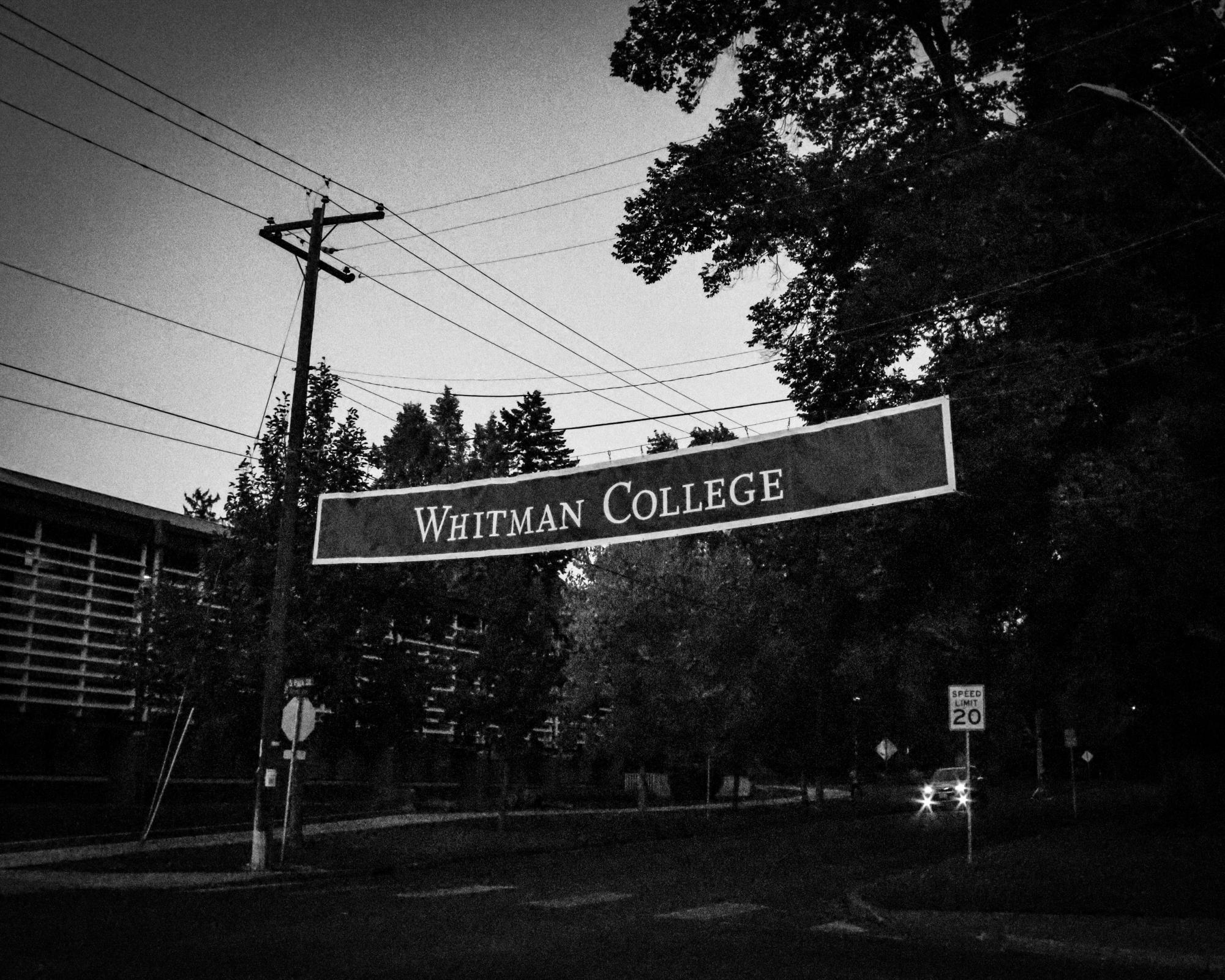
Nicole*, who spoke with investigators from the AGO numerous times, was a first-year when people close to her were drugged and assaulted.
According to Nicole, numerous students felt pressured to report cases of sexual violence through the Code of Conduct process, as opposed to Title IX. Nicole says the administration would pressure students to pursue things like mediation, telling students such processes were easier than Title IX.
As a result, Nicole says, survivors who were in a vulnerable state and scared of potential backlash felt forced to use the Code of Conduct system. According to Nicole, their stories are therefore not reflected in the Clery Report and other public campus safety reports.
When Nicole’s friends were assaulted, Dunn was the acting Title IX coordinator while also occupying the role of Associate Dean of Students. She says the overlap between the Title IX and Dean of Students office created a chilling atmosphere for survivors.
“You should never, ever have a situation where the Title IX coordinator is the same as the Dean of Students,” said Nicole, “it crosses a lot of lines, it crosses a lot of boundaries.”
Dunn denies allegations that her position created a conflict of interest.
“When I held those positions … I was under a very different policy. Like, we wouldn’t have addressed any of that. Sex or gender based harassment, discrimination, or violence through the conduct policy. It was all addressed through a Title IX policy,” Dunn said.
Nicole alleges that Dunn used her position to pressure students into informal reporting processes, as opposed to getting formal accommodations such as those offered through Title IX.
“The mediation thing, that was a consistent thing,” said Nicole, “One of my friends was getting stalked and harassed, [she] was trying to get separate classes, she was trying to report it. You want to put me in the same fucking room as the guy who’s actively harassing me and stalking me?”
Code of Conduct reports are handled through the Dean of Students’ Office. The system is highly private, one source intimate with the process described it as a black box. According to Nicole and multiple other sources, numbers of reports of sexual assault, intimate partner violence, stalking, and other offenses are hidden by the Code of Conduct system.
While official processes like the Title IX office are required to release public data about instances of abuse at schools, sources familiar with the workings of the administration say Whitman’s Code of Conduct system does not follow these same requirements.
“You want to put me in the same fucking room
as the guy who’s actively harassing me and stalking me?”
Carter says that all violations must be formally processed and reported through the Clery Act, regardless of which avenue the cases are pursued through.
“No matter what an allegation is formally processed as, if the underlying facts meet the definition of a VAWA Offense it is still Clery reportable,” said Carter.
Both Avery and Nicole witnessed a lack of clear education regarding resources on and off campus. They say this added to the burden placed on survivors.
“Students typically were not aware of their rights and what resources were available to them, and those pieces of information were not printed and publicly available on campus during my time there with up to date accurate information, in fact they were reposted with inaccurate information,” said Avery, “that lack of transparency … resulted in what appeared to be a pattern of students not feeling empowered to name experiences as Title IX jurisdiction experiences, as opposed to student Code of Conduct, when they were informed that they should be moving one direction or another.”
Furthermore, Avery claims that the college took advantage of potential uncertainty over whether something counted as a Title IX violation, using this as a way to avoid publicly reporting cases.
“I would be comfortable venturing a guess that in any circumstance where there is uncertainty as to whether or not something should be reported in a category, it is likely not,” said Avery.
Ezra* is a former student who is familiar with both sexual violence prevention efforts and the AGO investigation. During their time at Whitman, Ezra says they witnessed numerous instances of survivors being dismissed and all-out denied by Whitman administrators.
“I think the school is right to get sued and shit needs to change and they’re not doing enough. Their lack of commitment to making a healthy campus is embarrassing,” Ezra said.
Ezra continued to comment on their experience with administrative support of student sexual violence prevention efforts.
“The College as a business is also working to keep up the image of happy little liberal arts school in Walla Walla and doesn’t want, when people visit or in general, it to seem like we might need a sexual violence prevention team,” Ezra said.
The Office of the Washington Attorney General declined to comment on the investigation, stating that it is not typical for them to comment on pending investigations nor confirm their existence. Sources familiar with the investigation say the AGO estimated that they would likely go public with the investigation this year.
If you have been personally affected by sexual violence at Whitman, The Wire would like to hear from you. You can contact us at wiresurvivorstories@gmail.com or by calling or texting our tip line: (509) 731-4882
*Nicole, Avery, Breanna and Ezra are all pseudonyms used to protect the sources’ anonymity.

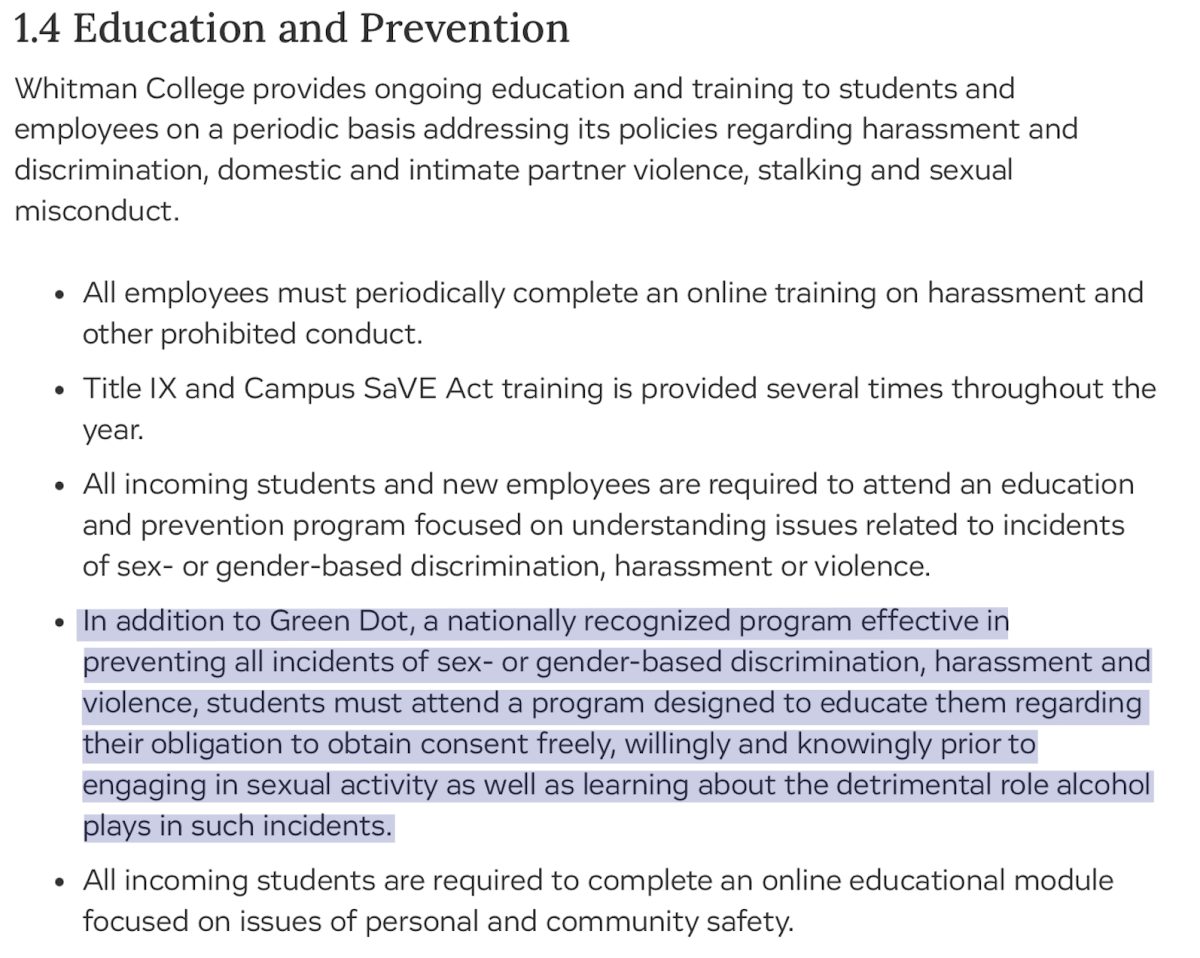














‘23Grad • Oct 25, 2024 at 3:09 pm
The disappointing thing is no one’s surprised. This happened to me 5 years ago, and it’s happened to countless people I know.
AJ • Oct 23, 2024 at 12:22 pm
Do better, Whitman.
WhitmanMom • Oct 23, 2024 at 4:27 am
This was like reading from my own daughter’s experience three years ago. Thank you for uncovering the pattern of deception.